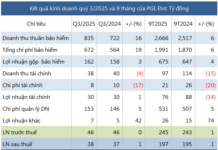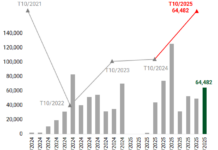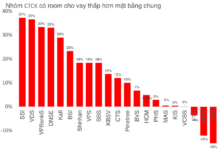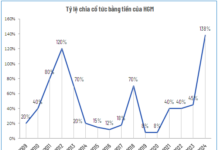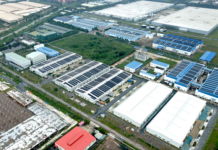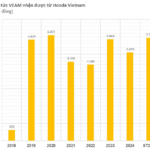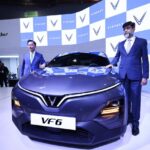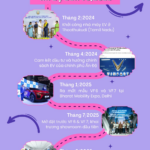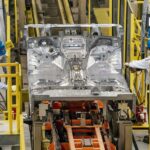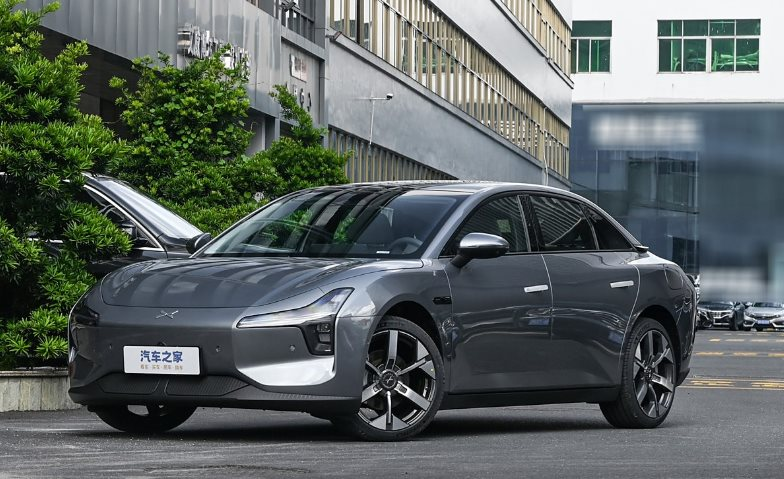With the Vietnamese government’s recent decisive moves to limit gasoline-powered motorcycles in major cities, there’s a growing interest in electric vehicles like never before. However, amidst this significant shift, some individuals are still hesitant about making the transition, rightfully wanting to choose the right time to maximize the benefits of policies and incentives.
A Green Transportation Roadmap is Set
July marks a pivotal moment as the future of urban transportation in large cities takes shape.
It started with the Prime Minister’s directive on July 12, instructing Hanoi to establish a roadmap to ban fossil fuel-powered motorcycles in the city center. Consequently, from July 1, 2026, gasoline-powered motorcycles will be prohibited within Belt Road 1. From January 1, 2028, this ban will extend to Belt Road 2, along with restrictions on personal gasoline-powered cars. By January 1, 2030, it will further expand to Belt Road 3.
Ho Chi Minh City quickly followed suit, announcing plans to convert a large number of gasoline-powered motorcycles to electric ones while also restricting private vehicles in key areas. The initial goal is to convert 400,000 gasoline-powered motorcycles of delivery drivers and ride-hailing drivers within three years. The future vision is to expand this to over eight million personal motorcycles across the city.
Never before have the country’s two largest economic and motorcycle-consuming centers been so resolute in their transition to green transportation. This has created a powerful impetus, causing a surge in public interest in electric motorcycles. With the roadmap set, the shift from gasoline-powered to electric motorcycles is an irreversible trend.
Early Transition – Strategic and Economic Benefits
As the government takes the initiative, public interest surges, and vehicle manufacturers are quick to respond. Their involvement is not just about stimulating consumption through various incentive programs but also about opening a new chapter for the green vehicle market in Vietnam.
Making the switch to electric vehicles now, instead of waiting until the last minute, offers both strategic and economic advantages.
Firstly, it’s a smart move that helps users mitigate potential risks when demand spikes in 2026. Anticipated shortages in supply or price hikes are foreseeable. Being an early adopter ensures a sense of control and peace of mind throughout the ownership experience.
Additionally, early transition translates to direct and long-term cost savings for consumers. Apart from the already economical operational and maintenance costs of electric vehicles compared to gasoline ones, this is the phase where both the government and brands offer the most attractive support and incentive policies to encourage the public.
Peace of Mind from Reputable Brands
In Vietnam, vehicles are not just valuable assets but also closely linked to the safety and convenience of their owners’ daily lives, with a typical “lifespan” of several years. Given this importance, prioritizing reputable brands is crucial, especially when it comes to electric motorcycles.
In the current market, established names like Yadea not only assure product quality but also provide peace of mind through comprehensive after-sales and support services. In this trend of greening personal transportation, these brands are also the frontrunners, understanding the needs of Vietnamese consumers.
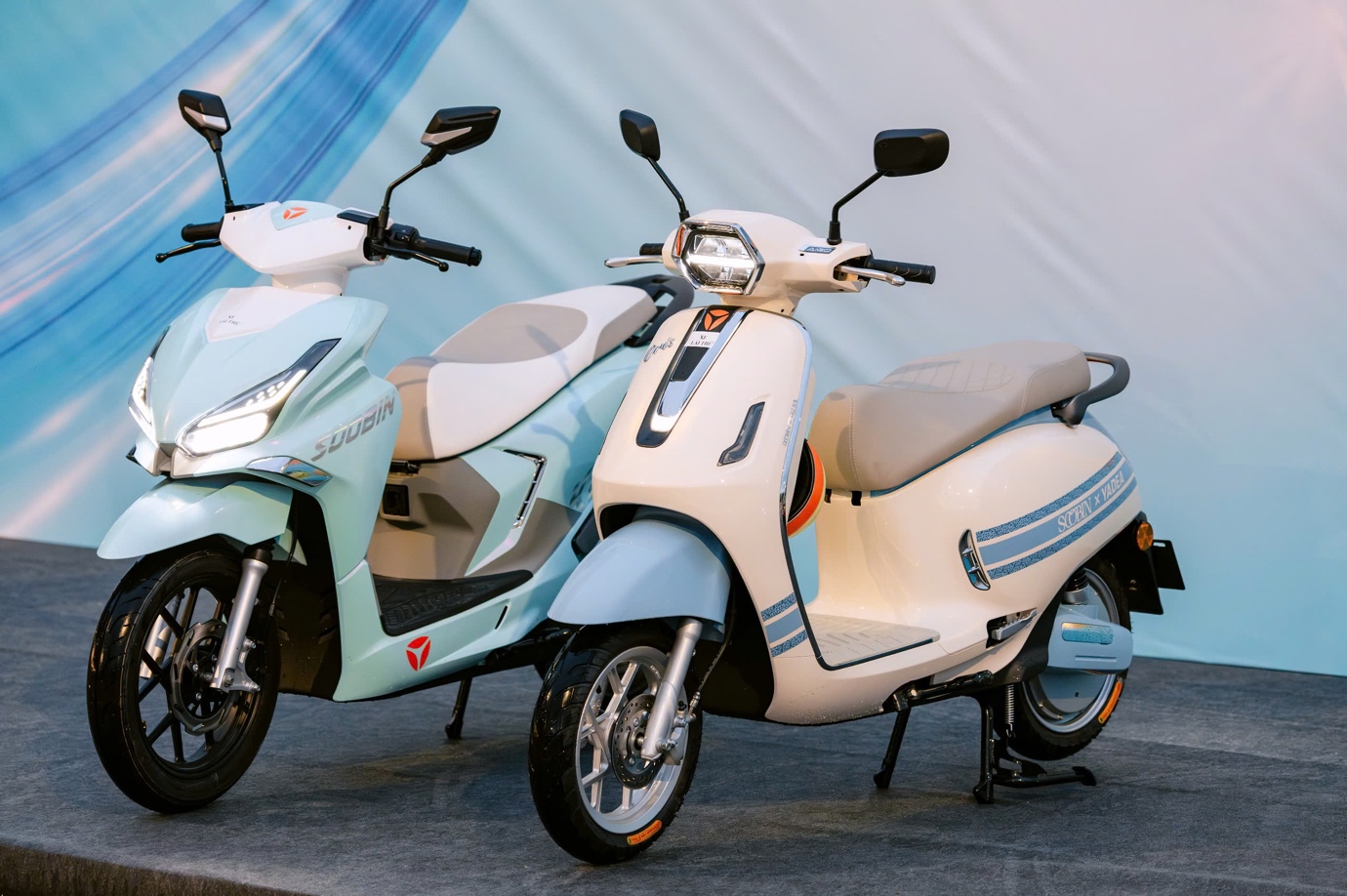
Yadea’s Vekoo and Velax electric motorcycle models target urban, youthful, and trendy consumers.
As a pioneer in the electric motorcycle industry, with 100 million vehicles sold globally, Yadea has swiftly launched a comprehensive and practical vehicle conversion support program in Vietnam. The brand offers a “trade-in” solution, accepting all types of old gasoline or electric motorcycles with a quick valuation process at their dealerships.
Yadea further eases the transition by providing opportunities for customers to own new electric motorcycles with initial costs as low as VND 9.9 million. The trusted electric motorcycle brand also benefits customers by offering direct discounts of up to VND 2 million on selected models, making electric motorcycle ownership more accessible and affordable.

Yadea is willing to buy back all types of old gasoline or electric motorcycles at optimal costs.
What Areas in Ho Chi Minh City Are Expected to Ban Gasoline Vehicle Registrations by 2026?
“In an effort to reduce emissions, a mandate has been issued for individuals and households residing in low-emission zones within the heart of Ho Chi Minh City. As per this mandate, the registration of new gasoline-powered motorcycles and scooters will not be permitted for those living in these designated areas. This bold step towards a greener future aims to encourage the adoption of alternative, environmentally conscious modes of transportation.”
A Business Receives Nearly $250 Million in Dividends from Honda in the First Half of 2025 as Vietnam’s Capital Plans to Phase Out Gasoline Vehicles.
As of the first half of 2025, VEAM’s revenue stood at an impressive 2.087 trillion, with a net profit of 3.410 trillion VND. The stellar performance is largely attributed to the significant contribution from its joint venture and associate companies, amounting to nearly 3.069 trillion VND.
The Future of Automotive Excellence: VinFast Creates a Stir in India
“Beyond battery and range, VinFast has another crucial card up its sleeve that Indians are eagerly awaiting: the unveiling of its cutting-edge technology and innovative features. With a focus on delivering an exceptional driving experience, VinFast is poised to revolutionize the Indian market with its forward-thinking approach and game-changing offerings.”
The Electric Vehicle Revolution: Why Commercial Drivers Are Hesitant to Make the Switch.
“Making the switch from a gas-guzzler to an electric vehicle can be a daunting task for any driver. The fear of the unknown, ranging from battery performance to the availability of charging stations and safety concerns, is enough to make anyone hesitant. However, it’s time to put these worries to rest and embrace the future of automotive technology. Electric vehicles offer a cost-effective and environmentally friendly alternative that is here to stay.”











